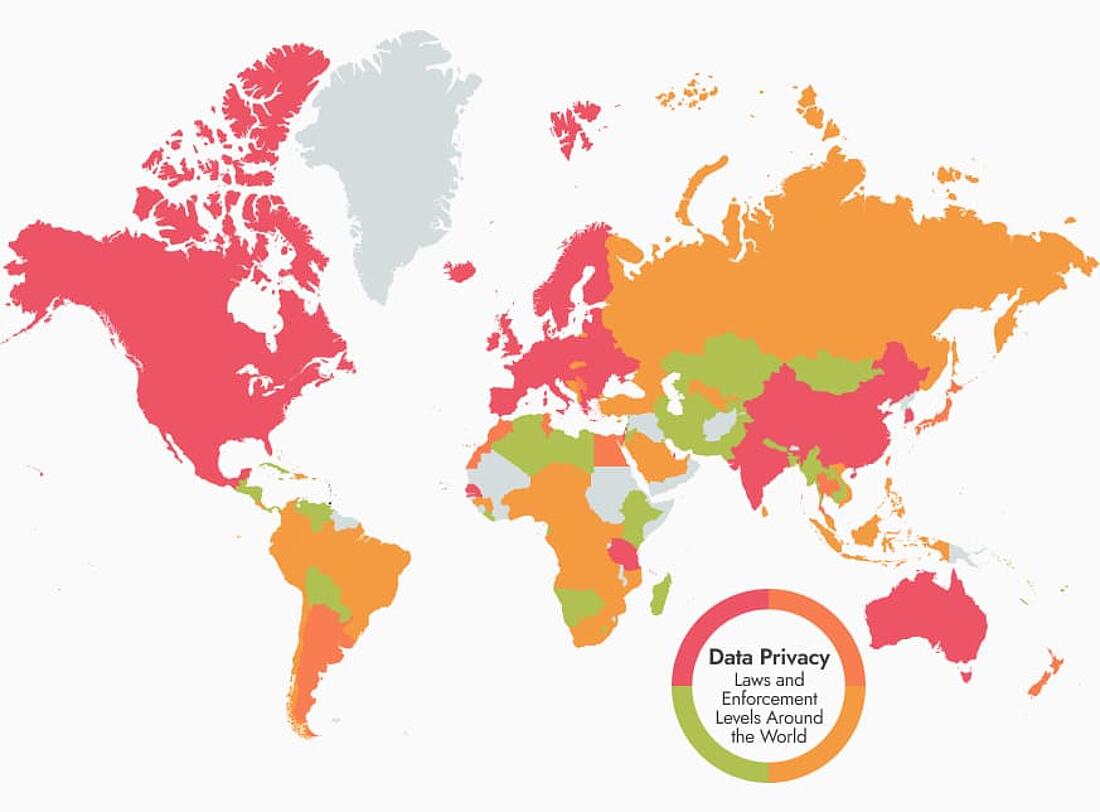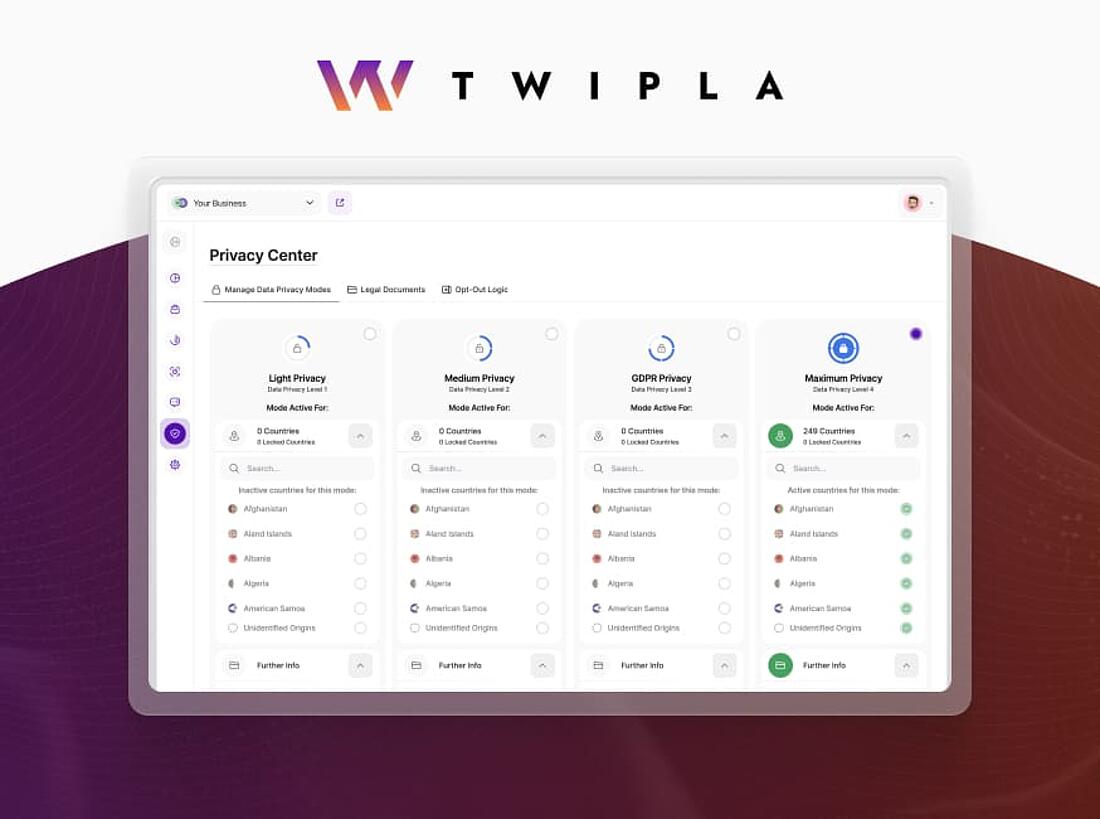- Why Us?
- Features
White Label
For SaaS Platforms & Agencies
Provide our complete analytics suite to your clients, directly within your own interface and with your/their own branding. Discover Analytics-as-a-Service and White Label Analytics. Great benefit, minimal effort.
- Pricing
- White Label
- Blog
- Use Case: Using TWIPLA’s Conversion Funnels to Uncover Onboarding Friction
- Website Intelligence News Roundup February 2025
- Website Intelligence News Roundup January 2025
- Alarming Behavior Tracking: Dead Clicks, Rage Clicks and More
- Data Management Strategy: Steps + Insights from Aleksejs Plotnikovs
- Craft a Successful Data Analytics Strategy in 6 Steps
- Interview: Aaron Weller on AI Privacy Challenges
- 2025 Marketing Compliance: Your Ultimate Guide (including Checklist) (current)
- ResourcesExpand Your KnowledgeGetting Started
2025 Marketing Compliance: Your Ultimate Guide (including Checklist)

Marketing compliance might not seem thrilling at first glance, but it’s an essential part of growing your business responsibly.
Neglecting it can lead to significant legal, financial, and reputational risks, making it critical for businesses to prioritize compliance from the outset.
In this blog, we’ll cover why compliance in marketing matters, provide a checklist to simplify your efforts, explore key regulations every marketer should know, and discuss how compliance varies across channels like email and digital marketing.
We’ll also highlight how tools like TWIPLA can help you stay compliant while optimizing your strategies.
Why Compliance in Marketing Isn’t Optional
(Even If Your Business Is Small)
Compliance is often seen as a concern only for large corporations by many small businesses.
This misconception can lead to serious consequences.
Regulations apply to businesses of all sizes, and authorities don’t differentiate between a startup and a multinational when enforcing penalties.
Take data privacy laws like GDPR and CCPA, for example.
Imagine you’re running an online store and decide to use customer data to send targeted ads. Without obtaining explicit consent under these regulations, you could face hefty fines or even legal action.
These regulations require businesses to handle customer data with care, no matter the scale of their operations.
Ignoring them could result in fines that may cripple a smaller businesses and new businesses, making it essential for startups to consider GDPR early in their lifecycle.
Furthermore, compliance builds trust.
When your audience knows you’re following the rules, they’re more likely to engage with your brand and share their information confidently.
Marketing compliance isn’t just about avoiding trouble; it’s about creating a sustainable and ethical business.
By adhering to compliance standards, businesses can also open doors to broader opportunities, like increasing their ESG rating and the possibility of partnerships with larger companies that prioritize ethical operations.
Another reason to focus on compliance is risk mitigation. Marketing campaigns often involve complex strategies, from social media promotions to email outreach.
54% of organizations have experienced a cyberattack in the last year (Ponemon Institute), highlighting the importance of robust compliance measures to mitigate risks.
Any misstep in these channels could lead to not only financial penalties but also reputational damage. For example, an email campaign that violates anti-spam regulations could alienate your audience and tarnish your credibility.
This is why compliance and compliance audits should be woven into the fabric of your marketing strategy, rather than treated as an afterthought.
Compliance Regulations Every Marketer Should Know

Understanding the key marketing compliance regulations is critical. Here are the most prominent ones:
General Data Protection Regulation (GDPR): Applies to businesses targeting or processing data from EU residents. It mandates clear consent for data collection and transparency in handling user information. Businesses must also honor user requests to delete or modify their data. Following GDPR compliance marketing practices can help ensure you avoid hefty fines.
California Consumer Privacy Act (CCPA): Gives California residents rights over their data, including the ability to opt out of data sales. Companies are also required to provide clear disclosures about data usage.
ePrivacy Directive: Complements GDPR by focusing on electronic communications. It governs the use of cookies, email marketing, and confidentiality in digital interactions. Compliance ensures that user permissions are respected, particularly when tracking online behaviors.
CAN-SPAM Act: Regulates email marketing in the U.S., requiring accurate sender information and an easy way to unsubscribe. Non-compliance can result in fines of up to $43,792 per email violation. Adhering to email marketing compliance standards can help you avoid these penalties.
FTC Guidelines: Ensure that advertising is not deceptive or unfair, covering everything from affiliate disclosures to influencer marketing. These guidelines emphasize transparency to maintain consumer trust.
ADA and WCAG: These standards promote digital accessibility, ensuring your content is usable by everyone, regardless of abilities. Non-compliance could result in lawsuits and alienation of key audience segments.
Brazil’s LGPD (Lei Geral de Proteção de Dados): Similar to GDPR, this law governs the collection and processing of personal data in Brazil. It emphasizes data transparency and the rights of individuals to access, correct, or delete their information.
India’s PDP Bill (Personal Data Protection Bill): Aims to safeguard personal data by requiring companies to obtain user consent before processing their data. It also enforces stringent measures for data localization and security.
Singapore’s PDPA (Personal Data Protection Act): Regulates the collection, use, and disclosure of personal data in Singapore. Businesses must ensure consent and protect user data to avoid penalties.
SEC Marketing Rule Compliance
→ What You Need to Know
For businesses in financial services, compliance with the Securities and Exchange Commission (SEC)’s Marketing Rule is non-negotiable.
This rule governs how investment advisors advertise their services, requiring all claims to be substantiated and free from misleading statements.
Testimonials and endorsements must include clear disclosures about compensation or material conflicts of interest.
Compliance in this area not only protects your business but also ensures you’re building genuine trust with clients.
Advisors must also maintain records of all advertisements and related documentation to demonstrate compliance during audits.
Investing in robust compliance software can simplify this process and reduce the risk of errors.
By prioritizing SEC marketing rule compliance, you protect both your business and your clients’ interests. Stay aware of updates, including the SEC marketing rule compliance date, to ensure your strategies remain up-to-date.
Marketing Compliance Checklist

Marketing compliance can be complex, but having a checklist simplifies the process by breaking it into manageable steps.
To give you a structured overview, here's a practical table outlining essential compliance considerations across different areas of marketing.
This quick guide ensures you can address the most critical aspects efficiently, serving as a starting point for more in-depth strategies.
Area | Action Point | |
|---|---|---|
Data Privacy | ⬜ Align practices with GDPR, CCPA, ePrivacy regulations. | |
| ⬜ Audit data handling practices to address vulnerabilities. | |
| ⬜ Ensure cross-border data transfers meet SCC requirements. | |
| ⬜ Build a response plan to act swiftly after security incidents. | |
Email Marketing | ⬜ Ensure compliance with CAN-SPAM and GDPR regulations. | |
| ⬜ Provide clear unsubscribe options in all campaigns. | |
| ⬜ Segment email lists based on consent for relevant content. | |
| ⬜ Avoid deceptive subject lines to maintain transparency. | |
| ⬜ Ensure email content align with user expectations. | |
Ad Content | ⬜ Verify ads for accuracy and IP compliance. | |
| ⬜ Collaborate with legal experts for ad copy reviews. | |
| ⬜ Adhere to local laws, particularly for highly regulated sectors. | |
Affiliate Marketing | ⬜ Disclose affiliate relationships to comply with FTC guidelines. | |
| ⬜ Train affiliates on compliance and review their promotions. | |
| ⬜ Monitor compliance with platform policies and regulations.. | |
Social Media | ⬜ Respect platform rules for sponsored content & transparency. | |
| ⬜ Review platform policy updates to prevent violations. | |
| ⬜ Ensure influencer agreements include compliance disclosures. | |
| ⬜ Verify the accuracy of any reposted user-generated content. | |
Accessibility | ⬜ Ensure marketing complies with WCAG inclusivity rules. | |
| ⬜ Use tools to evaluate and enhance content accessibility. | |
| ⬜ Test materials with assistive technologies to ensure usability. | |
Content Marketing | ⬜ Verify intellectual property usage for all content. | |
| ⬜ Include proper disclaimers for medical or financial advice. | |
| ⬜ Review content for outdated claims or unauthorized material. | |
| ⬜ Avoid clickbait & ensure claims are accurate to maintain trust. | |
Analytics | ⬜ Align analytics platforms with GDPR, CCPA & ePrivacy rules. | |
| ⬜ Go cookieless for full data capture w/o consent banners. | |
| ⬜ Audit analytics setups regularly to address compliance risks. | |
| ⬜ Ensure analytics dashboards provide exportable audit trails. | |
SEC Marketing Rule | ⬜ Substantiate all claims in financial service advertisements. | |
| ⬜ Maintain records of all advertising content for audits. | |
| ⬜ Disclose compensation for testimonials/endorsements clearly. |
How TWIPLA Can Help with Marketing Compliance

Navigating marketing compliance becomes much easier with the right tools.
TWIPLA’s privacy-compliant website intelligence platform is designed to support businesses in adhering to key regulations like GDPR, CCPA, and ePrivacy.
TWIPLA’s cookieless tracking ensures you can gather insights without relying on consent banners or cookies, maintaining full visibility of your traffic.
Its advanced data anonymization and secure EU-based storage guarantee compliance with global privacy laws.
By integrating TWIPLA into your workflows, you’re not just staying compliant; you’re setting a new standard for ethical and effective marketing.
Moreover, TWIPLA offers educational resources to help teams understand the nuances of marketing compliance. From webinars to detailed guides and a community portal, these resources empower marketers to implement best practices confidently.
With TWIPLA, compliance doesn’t have to be a hurdle - it becomes a foundation for sustainable growth.
Share article
Get Started for Free
Gain World-Class Insights & Offer Innovative Privacy & Security

You might also like
What Is Digital Experience Analytics? A Complete A-Z Guide 23 October 2024 - by Simon Coulthard
23 October 2024 - by Simon Coulthard
How These 16 Marketing Case Studies Changed the Game 21 October 2024 - by Simon Coulthard
21 October 2024 - by Simon Coulthard
Demographic Segmentation for Marketers: The Only Guide You Need 10 October 2024 - by Simon Coulthard
10 October 2024 - by Simon Coulthard











